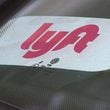There’s a saying in baseball: Flags fly forever. The thought being: If you win the World Series, you need never apologize for anything. But that longstanding truism – like the beliefs that a hitter’s batting average and pitchers’ wins are true measures of worth – has grown dated. Winning it all is great, yes, but there’s always a next season, and a next, and a next …
On Oct. 18, 2018, the Red Sox won the World Series. On Sept. 8, 2019, they fired Dave Dombrowski, the president of baseball operations who oversaw that triumph. There can be no questioning Dombrowski’s achievements: He has won it all in two cities, Miami being the other, and he twice led Detroit to the American League pennant. He’s probably a Hall of Famer. And yet: He’s out in Boston.
In his later years, the Dombrowski Way was to load up on veterans. In Boston, he benefited from the refusal of predecessor Ben Cherington to sell burgeoning talent – Mookie Betts, Xander Bogaerts and Jackie Bradley – for established players. (Cherington also won a World Series. He got fired, too.) Dombrowski inherited MLB’s top-ranked farm system. As of today, FanGraphs rates the Boston chain baseball’s worst.
Under Dombrowski, the Red Sox won the American League East three years running and went 108-54 en route to their World Series win last fall. They’re essentially out of playoff contention now, and the bill in Boston is about to come due.
The Sox owe three pitchers – Chris Sale, David Price and Nathan Eovaldi – a total of $292 million after this season. Price is 34, Sale 30; Eovaldi turns 30 in February. All have had arm issues. J.D. Martinez, the 32-year-old DH, can opt out of his contract in November. Betts, the 2018 American League MVP, can become a free agent after next season.
The Boston Globe reports that the Sox, whose $229 million payroll leads the majors by some distance, are willing to let Martinez and/or Betts leave in the attempt to avoid exceeding MLB’s competitive balance threshold again next year. The luxury tax mightn’t seem a big deal – Boston paid $12 million after last season – to us commoners, but even the richest owners have begun to blanch at paying money for nothing. (Even the Dodgers have taken to selling.)
Sox owner John Henry shouldn’t have been surprised that Dombrowski built a team around unsustainable contracts. He did the same in Detroit. (Miguel Cabrera, a shell of his former self, is owed $124 million through 2023, when he’ll be 40.) It’s surely no coincidence that Dombrowski’s chief assistant in Boston was Frank Wren – the two are longtime friends and associates – whose outlays for B.J. Upton and Dan Uggla left the Braves in similar (albeit lesser) contract hell.
Which brings us, finally and mercifully, to the Braves. Their GM is good with numbers. Their GM is good with everything. Their GM has been here two seasons, a tenure that has yielded one division title and will soon deliver another. Their GM should be MLB’s executive of the year. In an organization brimming with gifted players and a solid manager, the GM is the MVP.
Consider the two biggest buys Alex Anthopoulos has made. Josh Donaldson cost $23 million for one year. He has been the Braves’ best player. The Phillies and Padres spent $630 million for free agents Bryce Harper and Manny Machado, respectively. Harper and Machado have mustered a combined WAR of 5.9; by himself, Donaldson is at 5.7. Also: His team’s in first place.
The Cubs bought reliever Craig Kimbrel for $45 million over 2 ½ seasons. Kimbrel’s WAR this season is minus-0.3; his ERA is 5.68. Also: He’s on the disabled list with elbow inflammation. Also: His team is clinging to the second wild card, which isn’t what Theo Epstein – another Hall of Fame-type exec – had in mind. To be fair, Anthopoulos did make Kimbrel an offer. Thwarted there, the Braves landed starter Dallas Keuchel, who signed for one year at $13 million and, over two-plus months, has a WAR of 2.0.
Anthopoulos fell into the sport’s best collection of young talent. He has never pretended otherwise. His ability to balance tomorrow and today has been masterful. In 22 months on the job, he has sacrificed no prospect on track to become more than a serviceable big-leaguer. Kolby Allard is the biggest name to go, but he was a bigger name two years ago. Nor has Anthopoulos agreed to any contract apt to be oppressive. Even the long-term extensions afforded Ronald Acuna and Ozzie Albies were frugal if not cheap.
In the cold light of hindsight, Anthopoulos can be faulted for not offering Donaldson more money and years, but in November 2018 nobody knew how much the guy had left. If you’re the Braves, a measured approach is exactly what you want from your GM. You need him to be aggressive – we reference the in-season acquisitions of Keuchel and the deadline relief trio of Chris Martin, Shane Greene and Mark Melancon – but never reckless.
Bad contracts can kill a franchise. The snooty Red Sox just conceded as much. One reason the Angels haven’t won anything with the peerless Mike Trout is the 10-year deal for $240 million they handed Albert Pujols in December 2011. He was 31. The contract still has two years to run.
There were those who believed the Braves hadn’t done enough to improve a 90-win team. They’ve won 90 again, with 16 games to go. Donaldson has made the biggest impact of any free agent. Mike Soroka – who started only five games last season because of shoulder issues – has made a difference, too. For all the wailing that Anthopoulos needed to Find An Ace, the GM had a pretty fair idea that he had one already. (Max Fried has come good, too.)
The best part about the Braves is that we haven’t seen their best. Not many organizations can say with real confidence that they’ll be in the running for the 2023 World Series; this one can. Anthopoulos has shaped one of baseball’s best teams without doing anything to hamstring it long-term.
No GM can guarantee a World Series victory, but this GM has kept his trains running on separate tracks. The future looks great. Next month could be swell, too.
About the Author






